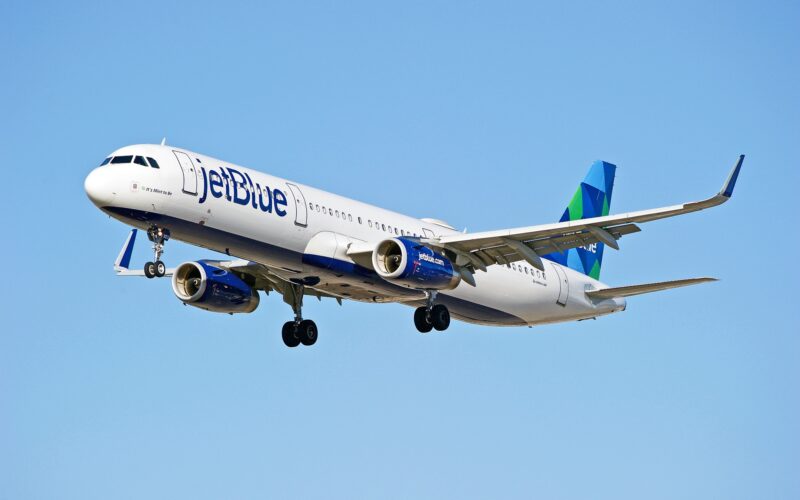For the first time, major United States (US) companies will come together to buy sustainable aviation fuel (SAF) certificates for nearly 850,000 gallons of high-integrity SAF.
Companies including Bank of America, Boom Supersonic, Boston Consulting Group, JPMorgan Chase, Meta and clean energy non-profit organization RMI are joining together through the Sustainable Aviation Buyers Alliance (SABA) to purchase sustainable aviation fuel (SAF) certificates at scale.
The fuel, produced by World Energy and helping fuel JetBlue flights in 2023, will reduce an estimated 8,500 tons of CO2 on a lifecycle basis.
Previously the companies have bought individual SAF certificates, but with a collective purchase the hope is it signals a huge commitment to the SAF market.
Currently, SAF makes up less than 0.1% of global jet fuel supply and sells at a significant premium to fossil jet fuel.
The SAF involved in the SABA transaction is produced by World Energy and reduces lifecycle carbon emissions by 84% compared to conventional jet fuel.
Companies purchasing SAF certificates pay some or all of the premium associated with SAF, pursuing decarbonization efforts that directly reduce emissions in the aviation sector.
Following the successful completion of this first joint procurement, SABA is launching its second competitive procurement process where it seeks to procure SAF certificates across a five-year timeframe. This second process will be open to all airlines and fuel providers.
“SAF is the most meaningful way we have to decarbonize the aviation industry, but it will take many stakeholders working together to bring the supply and cost of SAF where we need to meet our net zero goals,” said Sara Bogdan, Director of Sustainability & ESG at JetBlue.
She added: “We’re incredibly proud of the SAF commitments we’ve already made as an organization, but the collaboration and investment by businesses like those within SABA are what will supercharge our transition to SAF by allowing us to increase our offtake while also supporting those businesses’ own sustainability goals.”

